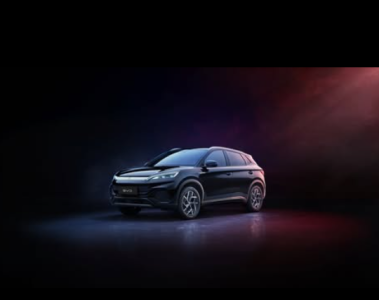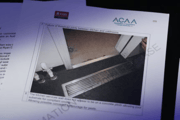Is this the tipping point for electric cars in Australia? Experts weigh in
By
Maan
- Replies 8
A significant shift is taking place on Australian roads, one that could reshape the future of transport in the country.
With electric vehicles making waves, the landscape is rapidly evolving in ways that even experts didn’t expect.
What’s driving this change, and what could it mean for consumers moving forward? The answers may surprise you.
As the year came to a close, electric vehicle (EV) sales in Australia remained steady. A recent report revealed that more drivers were opting for cleaner, more efficient vehicles.
The Electric Vehicle Council's State of EVs report highlighted that nearly one in ten new light vehicle sales (9.5 per cent) were EVs, marking a significant step in the nation’s transition toward petrol-free cars.
This modest yet promising shift was hailed as a ‘major milestone’ by the EV council, with industry experts predicting the market share to rise to 15-19 per cent by 2026.
By the end of 2024, EV sales were expected to exceed 110,000, while the number of EV models on the market had surged.
A 50 per cent increase in available models compared to 2023 meant that Australians now had access to 122 electric car models, including over 220 variants.
The rapid growth of Chinese EV brands like BYD, MG, and Great Wall Motors had a significant impact on the Australian market.
BYD, in particular, had become one of the leading EV brands in the country. This contributed to China's increased dominance in EV manufacturing and accelerated Australia's shift to electric vehicles.
In addition to the rise in electric car models, there was also a substantial increase in charging infrastructure.
The number of fast and ultra-fast charging stations had almost doubled in just one year.
There are now over 1,059 sites nationwide, with 1,849 high-power public chargers available to support the growing EV market.
‘EVs now account for nearly one in ten new cars sold in Australia—that’s a 150 per cent increase in market share compared with 2022,’ said Dr Jake Whitehead, Chief Scientist at the Electric Vehicle Council.
‘This year’s gradual growth in EV sales... builds on the momentum of a blockbuster 2023, further driving the upward trend.’
Despite these achievements, experts argued that EV growth in Australia still required significant support from both government and industry.
Aman Gaur from the Electric Vehicle Council noted that while progress had been made, Australia still had a long way to go in comparison to other developed nations.
‘Governments should come back to the table and consider reintroducing and expanding reasonable purchase incentives to drive EV adoption to a critical mass, including support to purchase second-hand EVs,’ Gaur urged
‘We also need stronger efforts from government, industry and other organisations to combat misinformation about EVs, which undermines public support and hinders the transition.’
In the State of EVs report, New South Wales was recognised as the top-performing state for EV adoption, followed by the federal government, the Australian Capital Territory, Western Australia, Queensland, Victoria, South Australia, Tasmania, and, lastly, the Northern Territory.
The report concluded that more consistent policies were needed across all levels of government to boost EV supply and eliminate barriers to the electrification of transport.

How quickly do you think we’ll see EVs become the norm on Aussie roads? Share your thoughts in the comments below.
With electric vehicles making waves, the landscape is rapidly evolving in ways that even experts didn’t expect.
What’s driving this change, and what could it mean for consumers moving forward? The answers may surprise you.
As the year came to a close, electric vehicle (EV) sales in Australia remained steady. A recent report revealed that more drivers were opting for cleaner, more efficient vehicles.
The Electric Vehicle Council's State of EVs report highlighted that nearly one in ten new light vehicle sales (9.5 per cent) were EVs, marking a significant step in the nation’s transition toward petrol-free cars.
This modest yet promising shift was hailed as a ‘major milestone’ by the EV council, with industry experts predicting the market share to rise to 15-19 per cent by 2026.
By the end of 2024, EV sales were expected to exceed 110,000, while the number of EV models on the market had surged.
A 50 per cent increase in available models compared to 2023 meant that Australians now had access to 122 electric car models, including over 220 variants.
The rapid growth of Chinese EV brands like BYD, MG, and Great Wall Motors had a significant impact on the Australian market.
BYD, in particular, had become one of the leading EV brands in the country. This contributed to China's increased dominance in EV manufacturing and accelerated Australia's shift to electric vehicles.
In addition to the rise in electric car models, there was also a substantial increase in charging infrastructure.
The number of fast and ultra-fast charging stations had almost doubled in just one year.
There are now over 1,059 sites nationwide, with 1,849 high-power public chargers available to support the growing EV market.
‘EVs now account for nearly one in ten new cars sold in Australia—that’s a 150 per cent increase in market share compared with 2022,’ said Dr Jake Whitehead, Chief Scientist at the Electric Vehicle Council.
‘This year’s gradual growth in EV sales... builds on the momentum of a blockbuster 2023, further driving the upward trend.’
Despite these achievements, experts argued that EV growth in Australia still required significant support from both government and industry.
Aman Gaur from the Electric Vehicle Council noted that while progress had been made, Australia still had a long way to go in comparison to other developed nations.
‘Governments should come back to the table and consider reintroducing and expanding reasonable purchase incentives to drive EV adoption to a critical mass, including support to purchase second-hand EVs,’ Gaur urged
‘We also need stronger efforts from government, industry and other organisations to combat misinformation about EVs, which undermines public support and hinders the transition.’
In the State of EVs report, New South Wales was recognised as the top-performing state for EV adoption, followed by the federal government, the Australian Capital Territory, Western Australia, Queensland, Victoria, South Australia, Tasmania, and, lastly, the Northern Territory.
The report concluded that more consistent policies were needed across all levels of government to boost EV supply and eliminate barriers to the electrification of transport.
Key Takeaways
- [*Electric vehicle sales in Australia remained steady, with a growing number of drivers opting for cleaner, more efficient cars.
- BYD emerged as one of the top EV brands, contributing to China's dominance in the Australian EV market.
- The number of fast and ultra-fast charging stations nearly doubled, with over 1,059 sites and 1,849 high-power chargers available.
- Despite progress, experts emphasized the need for more government support and consistent policies to boost EV adoption.
How quickly do you think we’ll see EVs become the norm on Aussie roads? Share your thoughts in the comments below.








